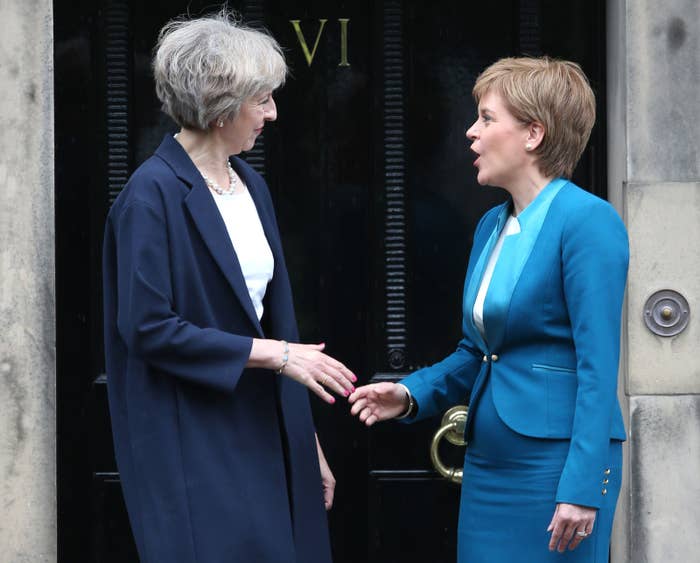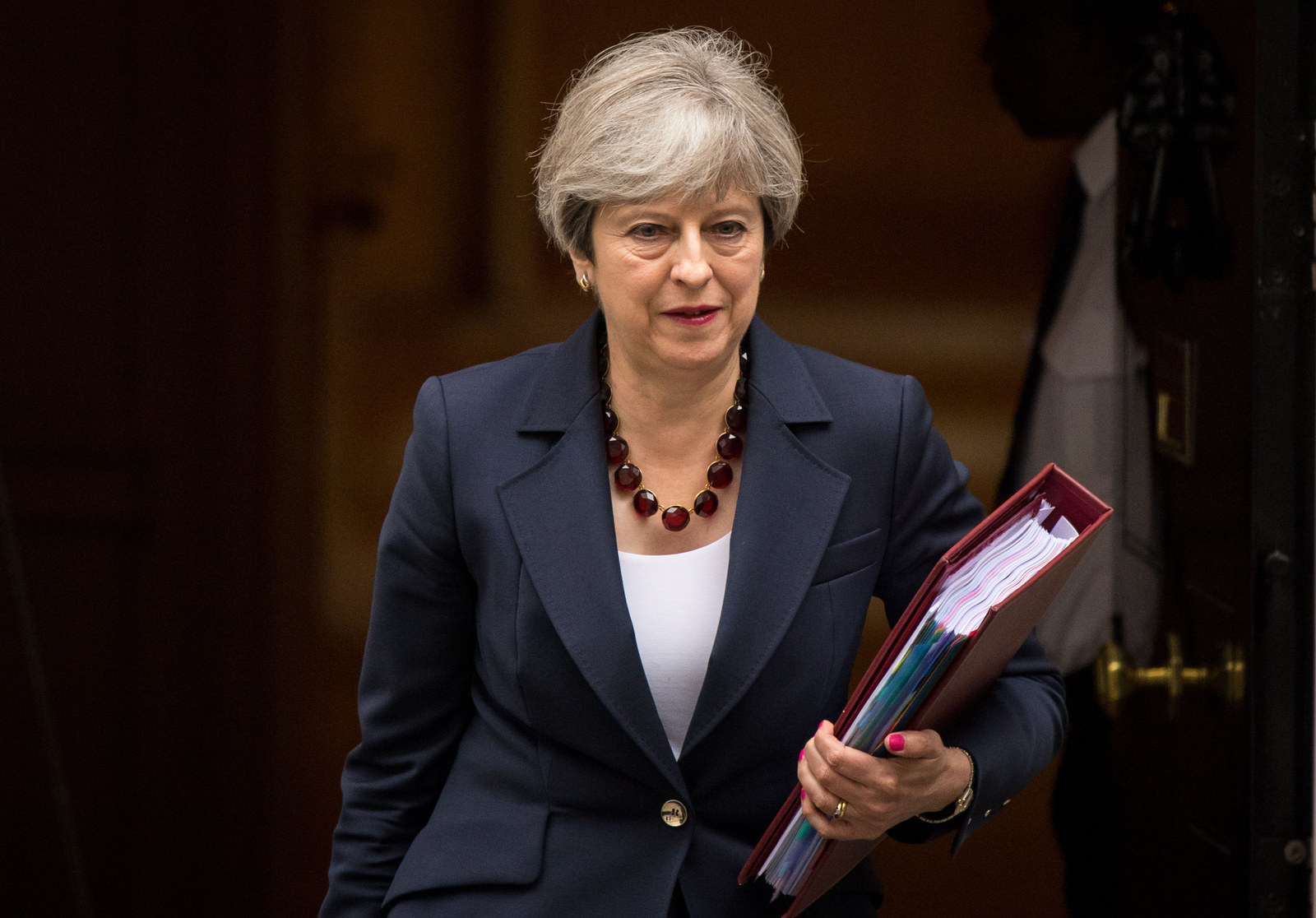
Scottish legal experts have said the Scottish parliament will not be able to veto Brexit by blocking Theresa May's Great Repeal Bill, but will have significant leverage over a UK government wanting to avoid a constitutional crisis.
Brexit secretary David Davis confirmed last week that the UK government will ask for Holyrood's consent for the bill, which will replace thousands of European laws when the UK leaves the EU, as it will directly affect the powers of the Scottish parliament.
Legal experts agree that the Scottish parliament, where all party leaders supported remaining in the EU, lacks the power to prevent the Great Repeal Bill from becoming law, even if it withholds its consent for the legislation.
"It’s been clear for some time that [the Great Repeal Bill] was going to need the Scottish parliament’s consent but the withholding of that would not actually prevent it from becoming law," constitutional expert Professor Alan Page from the University of Dundee told BuzzFeed News.
However, the experts said, if there is significant support for withholding consent in Edinburgh, the fear of a constitutional crisis could help the Scottish government and parliament extract significant concessions from the UK government as powers return from Brussels.

Consent is normally required when Westminster legislation directly affects Holyrood legislation under an agreement known as the Sewell Convention, but the Supreme Court ruled last year that the convention is not legally enforceable.
The Supreme Court judged in the case, brought by Gina Miller, that while the convention plays a very important role in the operation of the UK's constitution, its operation is "not within the constitutional remit of the courts".
Professor Stephen Tierney from the University of Edinburgh said in written evidence to a Scottish parliament committee that, while Holyrood cannot block the Great Repeal Bill from becoming law, the fact its consent may still be constitutionally required would strengthen the Scottish parliament's leverage as negotiations go on.
As Page explained: "It’s important to see the Great Repeal Bill as part of a bigger Brexit legislative programme which includes not just that bill, but bills of agriculture, fisheries, and many other ones which will be of interest to Scotland and which all also require consent."
He said that foremost among Westminster's concerns would be "the need for the Scottish parliament’s consent and the desire to avoid the political fallout that would come with the refusal of consent."
Page added: "It’s a case of thinking about what the Scottish government wants to achieve as part of that package as a whole rather than just looking to disrupt it. In other words, what concessions can it get by not withholding consent?"

The Scottish minister for leaving the EU, Mike Russell MSP, said last month that the Scottish government would advise the parliament to reject consent for the Great Repeal Bill if it didn't directly give powers straight to Holyrood.
Page said that he anticipates the talks between the two governments will be a "long drawn out process," that will largely focus on the Scottish government dangling the threat of withholding its consent to gain more powers in Scotland. "I expect that will all be part of the negotiations," said Page.
If Holyrood does refuse consent for the Great Repeal Bill, there are three possible responses from Westminster – which would apply to any refusal of further legislation – according to Aileen McHarg, a professor in public law from the University of Strathclyde: "One – remove any references to Scotland from the legislation leaving Holyrood to deal with the legal consequences of Brexit for itself.
"Two – amend the legislation following further negotiation to meet Holyrood's objection. Three – enact it as it stands, ignoring the refusal of consent."

Which outcome becomes likely, according to McHarg, will depend on if there is cross-party agreement among the Holyrood parties to reject the Brexit legislation – or if it's just a Conservative versus SNP argument.
"The key would be the reaction of the unionist parties in Scotland," she said. "If this is just the Tories versus the SNP, then the UK government may not feel that it has a lot to lose from ignoring consent. If it's the UK government versus the Scottish parties and the devolved governments, that might be different.
"It also depends on how much importance the UK government attaches to good relations with the devolved governments. The signs are that it is not much."
